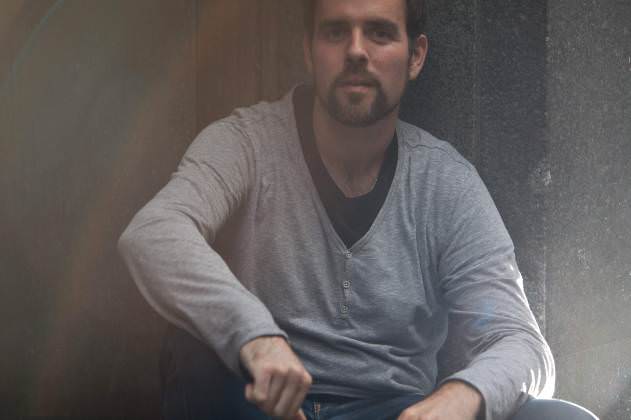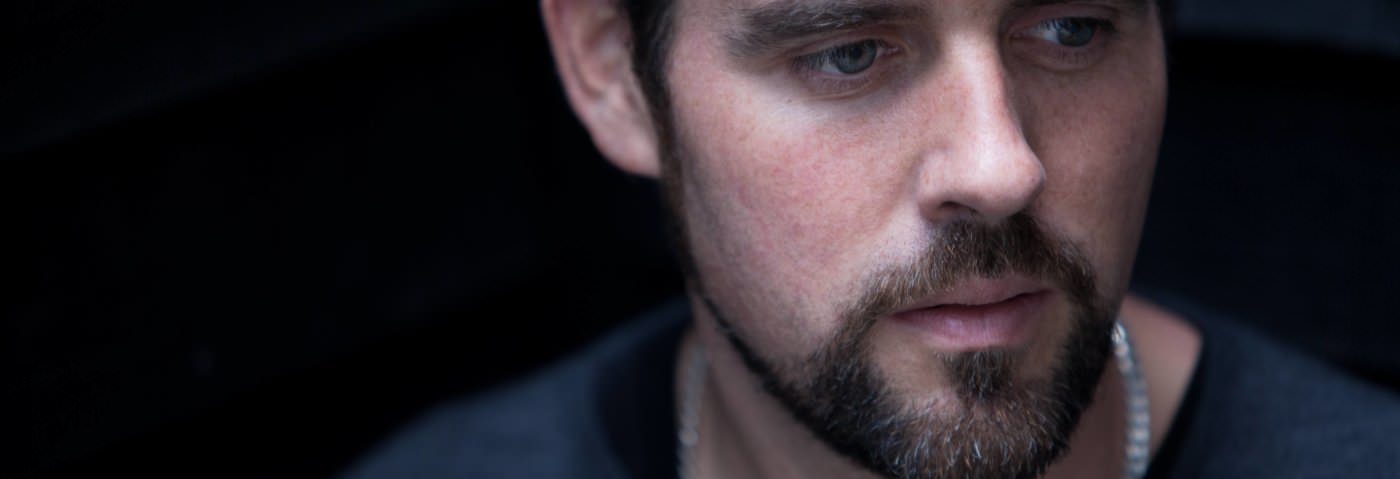As he releases Music Over Matter, the follow-up to his 2006 debut album Twisted, we speak to Sam Geiser about collaborations, working with vocals and his thoughts on a hip-house revival. Stream the full album below.

Deetron classes himself as “somewhere in between” house and techno, and that’s probably a fair self-assessment of the Swiss producer’s sound. Since the late 90s, the man born Sam Geiser has been producing sleek electronic grooves that focus squarely on the dancefloor, popping up on labels like Aus and Circus Company, but most regularly find him returning to diverse Belgian label Music Man Records.
It’s to that label that he returns again this month with Music Over Matter, his second full-length album. Across the 13 tracks, collaborations and vocal tracks feature more than ever, with peers like Seth Troxler, Ripperton and Ben Westbeech all popping up amongst a slew of others. The results paint a thoroughly contemporary picture of the day’s house scene, with pop inflections next to melodic grandeur and more than the odd 90s motif along the way. We spoke to Sam to find out more about the album, the man that made it and his career to date.
Attack: How has your summer been?
Deetron: It’s been great and long with particular highlights being Voltt and Celtronic and many UK festivals as well as Lux Fragil in Lisbon and the closing week in Ibiza.
Are you still doing your three deck sets? How did you come to do those, how long did it take to be skilled enough and what do you think the third deck allows you to do you couldn’t with two?
My setup consists of three decks and two CDJs at the moment, so yes, I’m still using multiple decks and the technical side of things is very important in my sets. When I DJ I’m trying to use two or three tracks at the same time in order to come up with a new version of the music – a bit like remixing, in a very basic way of course. Nowadays I’m using the CDJs to play a lot of edits, acapellas and unreleased music, which I believe greatly enhances the possibilities.
How much do your DJ sets feed back into the studio when you’re writing music? Are you thinking about what will work on the dancefloor?
The dancefloor definitely has an influence on my music to a certain extent but I wouldn’t rely on the dancefloor feedback only. The setting needs to be right for certain tracks in order for them to work best so I don’t consider it to be an overly important reference.
Generally do you think the art of the DJ is getting lost as a result of shorter DJ sets, sub-standard residents, the glut of technology and beatmatching tools?
For my understanding of DJing, which I originally got to know as one of the three main elements in hip-hop culture, that certainly is the case. I believe there is a movement towards the original values of DJing again these days though. There’s a younger generation which doesn’t simply try to crowd-please with a pre-arranged set of hands-in-the-air tunes but knows the history of the music really well and also values the technical side of things.
You’re known for sleek sounds, but the album seems a little more rough and raw than usual. Were you aiming for that?
It was my intention to work out a bit of a rougher sound aesthetic throughout the album and it was also due to the use of many old analogue synths on the album. As the album is very vocal-heavy, I wanted to create a counterpart with the music in order to avoid a too polished sound.
I believe there is a movement towards the original values of DJing again.
You were much more techno in your early days… you seem to have mellowed over time. Has it happened naturally with age? Were you tired of techno?
It has definitely happened naturally over the years and as a result of being influenced by a huge variety of music across many genres. I’m not at all tired of techno – there’s actually a lot of amazing techno around these days and I wouldn’t say my music is either house or techno but it sits somewhere in between – probably leaning towards the tougher side of the spectrum though.
Back in the day I understand you were a hip-hop DJ and specifically into what was called hip-house. What were your essential tracks back then?
My essential hip-hop tracks at the time were Gang Starr’s ‘Take It Personal’, De La Soul’s ‘Me, Myself And I’ and A Tribe Called Quest’s ‘Rhythm’. The first four-to-the floor tracks I heard were ‘I’ll House You’ by the Jungle Brothers and the Royal House singles but the one track which really won me over for house and techno was E-Dancer’s ‘Pump The Move’.
Loco Dice has said he thinks hip-house is on the verge of coming back. What are your thoughts?
It very much belongs to that period of time in my point of view so I’m not exactly longing for it to come back.
How do you think your sound has evolved and improved since your debut album in 2006? Can you feel the process getting easier, or that you are able to get your message out in a clearer fashion?
I’ve rearranged my studio setup over the past two or three years. I took many old synths out of the basement, bought some new ones as well and as a result of this my way of working has moved away from using plugins compared to my first album. The process has become a lot more fun as I often record session takes with these synths and record them as separate tracks into Ableton. I then tweak and arrange them during the final arrangement and mixdown only in order to retain the lively feel of those recordings.
Going back even further, how long did it take you to find your own voice now you look back? Was it a challenge? And is it a challenge now to find the right headspace to make music?
Obviously, it was very challenging in the beginning and still is at times of course but I found a strategy which works really well for me. If I get stuck with a track or an idea in the studio I just move on with something else and go back to the original idea maybe the next day, a week or even months later. That way I’ve been able to keep up a momentum in my work and not get stuck along the way.

12.44 PM
I like the more intruding and provocative questions, like the one about the “Oh baby” vocals or the one about the possible intention of a pop-house track…. Please give us more of those! We want the world of electronic music production to be challenged and asked the right questions. Some good points Kristan, keep it up. As for Deetron, he’s cool.